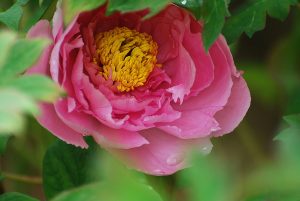You are hoping that gardening would be a good way to release the tensions you have at work. In truth, it may not always be the case. Gardening could also be demanding. You need to prepare before jumping on the bandwagon.
Gardening has become a lucrative hobby that is affecting the market and at the same time splitting environmental advocates. Before, it was just a matter of passing time weeding the gardening, trimming the shrubs, and raking in the leaves. But now, it has become rather competitive, with people wanting to have more exotic plants on display. The garden has also expanded indoors, taking over walls and ceilings.
While having a green environment is good, there have already been cases of poaching plants from their natural habitats because of the high price of exotic species in the market. This kind of gardening is no longer healthy. Stick to the relaxing reasons for gardening and take it on as a relaxing hobby instead of competing with the displays in social media. Here are some tips to get you started.
Do your research.
Understand the different kinds of plants and their behaviors. Know what likes a lot of sunlight, water, shade, and what species would thrive in your locality. If you go to a plant shop immediately, unless you know the owner well or are sure they would be honest with their plants, you might get varieties that will only thrive in a well-conditioned environment. Plant shops usually have a greenhouse that they could control for plants that would need extra care. If you could not recreate the same environment in your home, your plants will only die.
It’s a different case if you are setting up a garden especially for specific plants. For example, you may want to collect different kinds of roses. But this would go beyond a simple hobby for relaxation as you would need to invest a lot of resources to set up a greenhouse for your flowers.
Set a budget.
In line with understanding the plants you could have at home, you also need to set limits as to how much you could spend on your plants. The budget does not only include the plants themselves, but also the pots, netting if needed, a trellis if it’s a crawling plant, healthy garden soil, and other things you would need like water cans and hand trowels. Some people make the mistake of simply considering their expenses in buying plants. Then they get stressed when they realize they have to buy garden equipment to make their plants thrive.
Train your pets.
There’s nothing more stressful than having your pets roll around or dig up your flower beds and shrubs. Enroll your dog in a training class that would teach them to respect plants. While puppies are the most active in plant destruction, sometimes adult dogs, when not properly trained, would knock down pots or dig around your garden. Cats, too, at times love sunning themselves in flower beds.
Plot it out before you even start buying plants.

A common mistake for starting garden enthusiasts is that they don’t plan where to put their plants before buying. Again, plants have specific needs so sun-loving plants need to be reached by direct sunlight while those that prefer cooler environments, need to be shaded. If you don’t plot your plants ahead, you might end up worrying about where you could place them. For example, you got more sun-loving plants and yet your home has limited outdoor area. Instead of being spaced properly to receive the adequate sunshine they need, they might end up crowding and shading each other.
Incorporate it into your routine.
You don’t want to forget your garden when you’re swamped again with work. Taking on a hobby like this is a commitment. Unlike other hobbies like playing a musical instrument or playing golf, you couldn’t just put your materials in a cabinet for a while and just pick up where you left off when you get the time again. If you neglect your garden for a few days, you’d be starting from scratch again. You are dealing with living beings here, and they need continuous sustenance to keep on living. You don’t have to do heavy work every day. At least make sure they get enough water and sunlight. You could do the weeding and repotting when you have free time.
Although gardening could get tiring, it is a gratifying hobby. When you see your plants multiplying and you start repotting new sprouts, you feel your success as a gardener. You are rewarded for your hard work. They don’t have to be as extravagant as those that are being shown off on social media sites. Keep it as a light hobby and don’t allow it to become a stressor.





